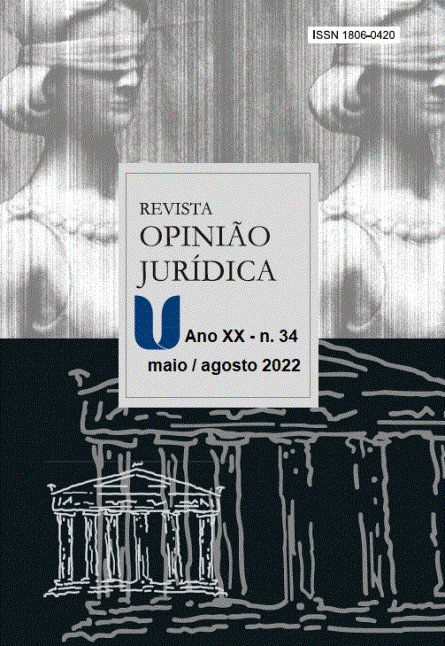REVIEWING THE PRINCIPLE OF TAX TYPICITY: AN ANALYSIS FROM THE NOTION OF CONCEPTS AND TYPES
DOI:
https://doi.org/10.12662/2447-6641oj.v20i34.p30-59.2022Keywords:
tax typicity, concepts, typesAbstract
Objective: The objective of this article is to review the principle of tax typicity in light of an adequate conception of concepts and types, analyzing its content and delimiting its extension.
Methodology: The research has a basic or pure nature, the approach is qualitative and adopts the bibliographic procedure, starting from the distinction between concepts and types.
Results: The tax typicity constitutes the material dimension of the constitutional principle of legality and is embodied in the command addressed to the legislator to describe all elements of the tax and its legal consequences. The concepts of private law incorporated by the tax legislation can be reformulated by the Tax Law, as long as through statutes. However, the concepts used by the Constitution to delimit tax competences cannot be altered by the infra-constitutional legislator, due to constitutional supremacy. The economic interpretation of the taxable event, as well as other doctrines that intend to justify taxation directly on the principles of ability to pay, equality and social solidarity, is not supported by our legal system.
Contributions: The principle of tax typicality is positive in the national legal system, and should be understood not as a requirement for the selection of absolutely precise concepts for the definition of incidence hypotheses, but as a command to use, to the greatest extent possible, concepts that allow the predictability and determinability of taxes.
Published
How to Cite
Issue
Section
License
CESSION OF COPYRIGHTS
The submission of articles to analysis for publication on Opinião Jurídica implies the author(s) transfers copyrights to Centro Universitário Christus – UNICHRISTUS for reproduction, publicizing, distribution, printing and publication, according to the Publication Norm 414R, Opin. Jur., Fortaleza, year 12, n. 16, p.1-414, Jan./Dec. 2014, costs to be bore by UNICHRISTUS, in whatever format or means that may or shall exist, in accordance to articles 49 and following of Federal Law 9.610/98.
1. In ceding copyrights, the author(s) agrees to do so in exclusivity, free of charge and for the totality of the work.
2. UNICHRISTUS may make the work, in its entirety or in parts, available for scholarly purposes, without altering its contents, except for small corrections that are deemed necessary.
3. The cession of copyrights is valid in all countries and for versions of the material in its original language or translated into a foreign language.
RESPONSIBILITY FOR THE CONTENT
By submitting an article, the author(s) declare to have sole responsibility for the content of the piece and is(are), therefore, responsible for any judicial or extrajudicial measures referring to it.
1. In case of joint authorship, all authors are considered collectively responsible, except when proved otherwise.


















